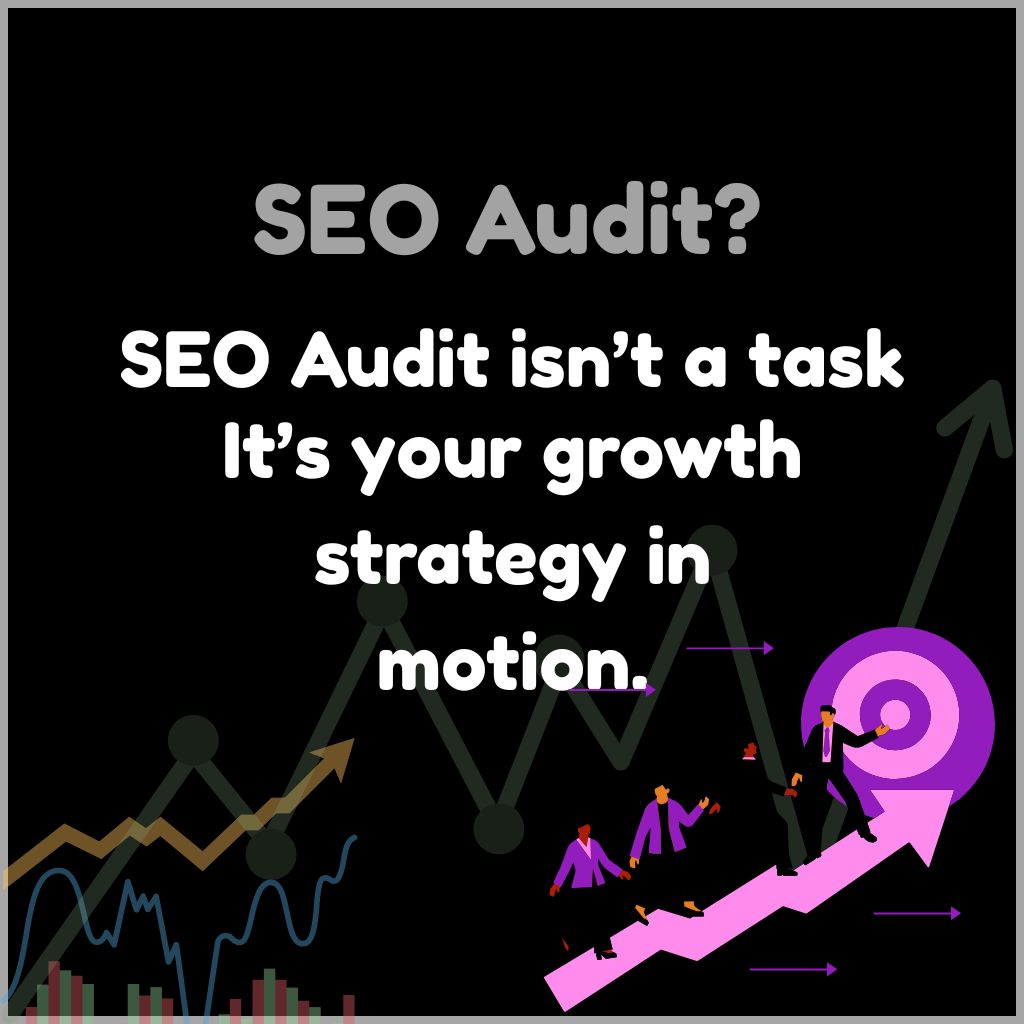You’ve got great content, an eye catching website, and an active social media presence. Yet, your website traffic is stagnating, & the search engine rankings just aren’t budging. What’s the missing piece of the puzzle? Chances are, it’s something you can’t see but search engines certainly can.
SEO is more intricate than ever before, influenced by cutting edge AI algorithms, fast evolving user expectations, and new data privacy norms. This is where an SEO audit comes in.
Think of it as a deep dive into your website’s health, revealing technical issues, content gaps, and optimization opportunities that could be holding your site back from peak performance.
We’ll explore why an SEO audit is indispensable for staying ahead in ’2026’, how it enhances your website’s visibility, and why it’s the key to unlocking new growth opportunities in a competitive online space.
Let’s Dive In….
What Is SEO Audit?
An SEO audit is like a full body checkup for your website. It thoroughly examines how your site performs for both search engines and real users revealing hidden technical issues, weak content areas, and missed optimization opportunities that may be silently affecting your traffic, rankings, and conversions.
Just like doctors use tests to diagnose health problems, an SEO audit uses data, tools, and analysis
to spot what’s working & what’s not-so you can take action before problems grow.

An SEO audit covers four key areas:
- Technical SEO: Ensures search engines can crawl, index, and understand your site.
- On-Page SEO: Analyzes content, keywords, meta tags, and internal linking.
- Off-Page SEO: Examines backlinks, domain authority, and external signals.
- User Experience (UX): Checks page speed, mobile usability, and navigation.
By addressing these areas, an SEO audit provides a clear roadmap to boost your site’s visibility and performance.
Signs Your Website Needs an SEO Audit
Not sure if your site needs an audit? Here are common red flags that signal it’s time for a checkup:
| Warning Sign | What It Could Mean |
| Traffic is declining | Technical errors, algorithm penalties, or poor UX |
| Pages not indexed | Crawl issues, blocked content, or misconfigured robots.txt |
| Slow page speed | Failing Core Web Vitals, like Interaction to Next Paint (INP) |
| Low rankings despite great content | Keyword mismatches or on-page SEO gaps |
| Mobile site issues | Failing Google’s mobile-first indexing |
| Suspicious backlinks | Risk of penalties from toxic or spammy links |
If you notice any of these, an SEO audit can diagnose the problem and guide you to a solution.
Why SEO Audit Is Critical In ’2026’
SEO audits aren’t just a nice to have they’re essential for staying competitive. Here’s why they matter more than ever:
1. Uncover Technical Errors That Sabotage Rankings
Search engines like Google need websites to be technically clean and error-free to rank them well. Even if your content is great, technical issues can stop Google from properly crawling and indexing your site, hurting your rankings.
Common technical problems include:
- Broken Links (404 errors): These lead to dead pages, wasting Google’s crawl budget and frustrating users. Google recommends fixing them quickly.
- Duplicate Content: Confuses Google about which page to rank and lowers your SEO value.
- Incorrect Canonical Tags: Mislead search engines on the main page to index, splitting ranking power.
- Missing or Outdated XML Sitemaps: Without accurate sitemaps, Google might miss important pages.
- Server Errors (5xx): These stop Google from accessing your site, risking de-indexing.
Google’s advanced AI crawlers like MUM and RankBrain look closely at your site’s quality and technical health. Even small errors can cause ranking drops or penalties.
Google experts and studies confirm that fixing these issues improves crawlability and boosts rankings. So, regular SEO audits to spot and fix technical errors are essential to keep your site visible in search results.
2. Boost Site Speed and Core Web Vitals
Page speed is a top ranking factor, especially with Google’s focus on Core Web Vitals:
SEO audit identifies:
Tools like Google PageSpeed Insights, Lighthouse, and WebPageTest help you optimize for speed and pass Core Web Vitals checks.
3. Optimize Content for AI and Voice Search
Google’s algorithms prioritize content that’s relevant, authoritative, and user focused. An SEO audit ensures your content:
With AI chatbots like Google’s Gemini and xAI’s Grok answering queries, audits also help you optimize for conversational, zero click search results.
4. Stay Ahead of Google’s ’2026’ Algorithm Updates
Google’s search algorithms are constantly evolving, incorporating real-time machine learning improvements and advanced ranking models such as MUM (Multitask Unified Model) and Rank Brain. In [currenr_date format=’Y’], there are several key focus areas that every website owner must understand:
E-E-A-T: Experience, Expertise, Authoritativeness, Trustworthiness
Google places great importance on the E-E-A-T framework, especially for websites in YMYL
(Your Money, Your Life) categories such as health, finance, and legal advice. This means:

An SEO audit helps assess your content and authorship against E-E-A-T standards to ensure compliance with Google’s expectations.
AI-Generated Content Detection
While AI-generated content is increasingly common, Google has updated its algorithms to detect and penalize low-quality or overly automated AI content. In [currenr_date format=’Y’], Google targets content that is:
- Superficial or unoriginal.
- Lacking a human touch or genuine understanding.
- Overusing keywords unnaturally or excessively.
Therefore, when using AI tools for content creation, human review and editing are essential. An SEO audit can help identify pages with low-quality AI content so you can improve or remove them.
Data Privacy and Tracking Compliance
With stricter regulations like GDPR (Europe), CCPA/CPRA (California), and the rise of cookieless tracking methods, ensuring your website is privacy-compliant has become critical. Common SEO-impacting issues include:
- Missing or improperly implemented cookie consent banners.
- Outdated or incomplete privacy policies.
- Google Analytics or other tracking tools being blocked due to lack of user consent.
- Improper use of personal data that undermines user trust.
An SEO audit verifies that your site complies with these regulations and that your analytics data remains accurate and reliable.
SEO audits are not just about fixing technical problems – they are essential for future-proofing your website. They help ensure your content meets E-E-A-T criteria, protects you from penalties related to low-quality AI content, and keeps your site aligned with evolving data privacy laws. Staying up to date with algorithm changes is now a fundamental part of any successful digital strategy.
5. Strengthen Your Backlink Profile
Backlinks remain a ranking factor, but quality matters more than quantity. An audit:
Tools like Ahrefs, Moz, or SEMrush help you clean up and strengthen your backlink profile.
6. Enhance User Experience [UX]
Think of your website as a digital storefront. If it’s cluttered, hard to navigate, or slow to load – visitors won’t stick around. That’s where User Experience (UX) comes in.
UX is all about how people feel when they browse your website. Is it smooth and intuitive? Or frustrating and confusing?
From layout and speed to mobile-friendliness and accessibility, UX shapes the journey your visitors take – and that journey directly affects your SEO rankings.

Why UX Matters for SEO:
When users enjoy their experience on your site, they:
These behavioral signals tell Google your content is valuable – and that means higher rankings.
7. Maximize ROI from Existing Content
Why churn out new content when you can optimize what you already have? An SEO audit helps you:
This approach saves time and drives more traffic with less effort.
8. Prepare for Local and Video SEO
For small businesses, local SEO is critical. An audit ensures your:
Video SEO is also booming, with YouTube as the second largest search engine. Audits check for optimized video titles, descriptions, and transcripts to rank in video carousels.
Real-Life Example: How an SEO Audit Revived a Blog
In early ’2026’, a lifestyle blog saw a 40% traffic drop over three months. An SEO audit revealed:
Actions Taken:
Results in 60 Days:
This case shows how an SEO audit can turn things around quickly.
How Often Should You Run an SEO Audit?
To stay competitive:
- Quarterly audits for most websites.
- Monthly audits for high traffic or eCommerce sites.
- Immediate audits after:
- Major Google updates.
- Website redesigns or migrations.
- Sudden traffic or ranking drops.
Best Tools For An SEO Audit In ’2026’
Here are the top tools professionals use
| Tool Name | Purpose | Cost |
| Google Search Console | Tracks indexing, crawl errors, and performance | Free |
| Screaming Frog | Crawls sites for technical issues and metadata | Freemium |
| Ahrefs / SEMrush | Comprehensive audits, backlinks, and keyword gaps | Paid |
| SurferSEO | Content optimization and topical authority analysis | Paid |
| Lighthouse | Tests Core Web Vitals and UX | Free |
Combine 2-3 tools for a complete audit. For example, use Screaming Frog for technical issues and SurferSEO for content optimization.
Hey friend keep in mind that no SEO tool can deliver 100% accurate results. That’s why it’s best to deeply understand your own website and solve as many issues as you can manually wherever possible.
Pro Tips for a Successful SEO Audit
- Prioritize High-Impact Fixes: Start with crawl errors or Core Web Vitals failures.
- Document Everything: Use spreadsheets or tools like Notion to track issues and progress.
- Analyze Competitors: Use Ahrefs or SEMrush to find keyword and content gaps.
- Test Accessibility: Ensure your site meets WCAG standards for inclusivity.
- Re-Audit Regularly: Check progress 30-60 days after fixes.
Common Mistakes to Avoid
FAQ’s
1. How often should I do an SEO audit?
For most sites, a quarterly audit is enough. High traffic or eCommerce sites may benefit from monthly audits. Also, audit after major updates or sudden drops in traffic.
2. Why do I need an SEO audit?
SEO audits help uncover hidden issues like broken links, slow page speeds, and poor mobile performance that can hurt your rankings. Regular audits ensure your site is optimized for the latest search engine algorithms and user expectations, leading to better visibility and growth.
3. What tools are best for conducting an SEO audit?
Some popular tools for an SEO audit include Google Search Console, Screaming Frog, Ahrefs, SEMrush, and SurferSEO. Combining these tools gives you a comprehensive picture of your website’s health, helping you address both technical and content-related issues.
4. What should I do if my website's SEO audit reveals major issues I can’t fix myself?
If an SEO audit uncovers significant issues that are beyond your expertise, consider working with an SEO professional. They can help resolve complex technical problems, enhance your content strategy, and optimize your site’s overall performance to get you back on track.
Conclusion
To wrap up, conducting an SEO audit is not just an option it’s essential for maintaining a competitive edge online.
With evolving algorithms, stricter standards for user experience, & the constant need to adapt to new SEO trends, a thorough audit helps you uncover the hidden issues that might be harming your site’s performance.
Whether it’s fixing technical errors, optimizing your content, improving page speed, or ensuring compliance with the latest privacy regulations, an SEO audit is a proactive step toward long term success.
By regularly auditing your website, you’re ensuring that it remains aligned with the latest SEO best practices, ultimately helping you stay ahead of your competitors and attract more qualified traffic.
In an era where every detail counts, an SEO audit provides the insights and direction you need to continually improve your site’s visibility and performance.
Don’t wait optimize your site, improve user experience, and stay ahead in search with a smart SEO audit today.
Most Loved Article List







